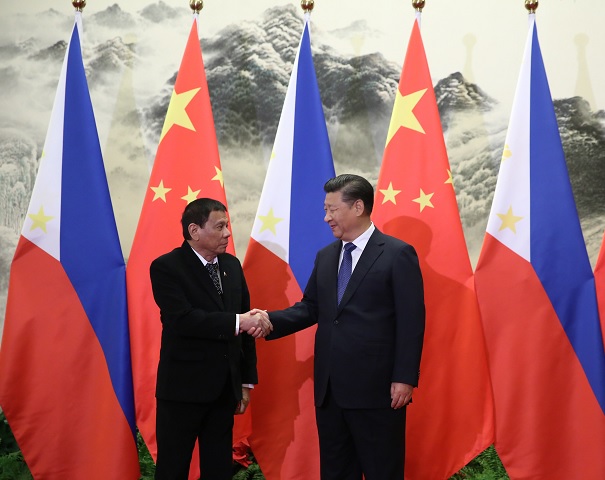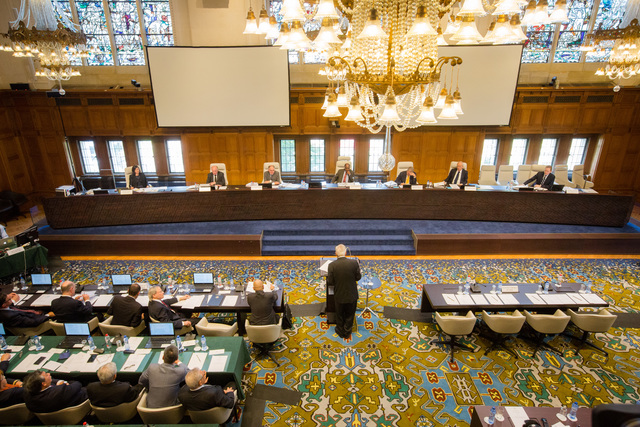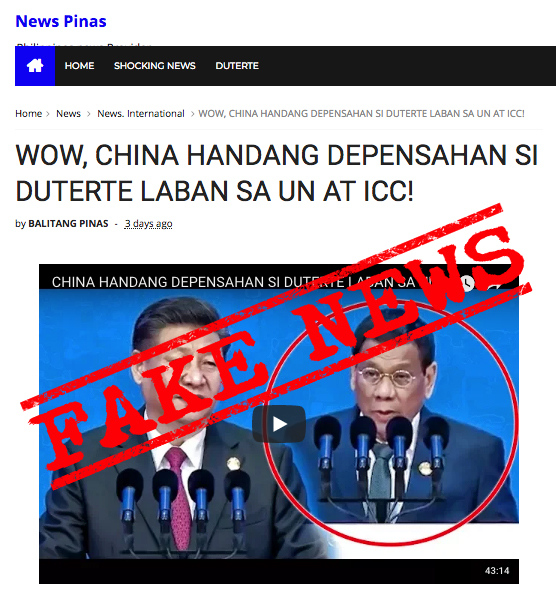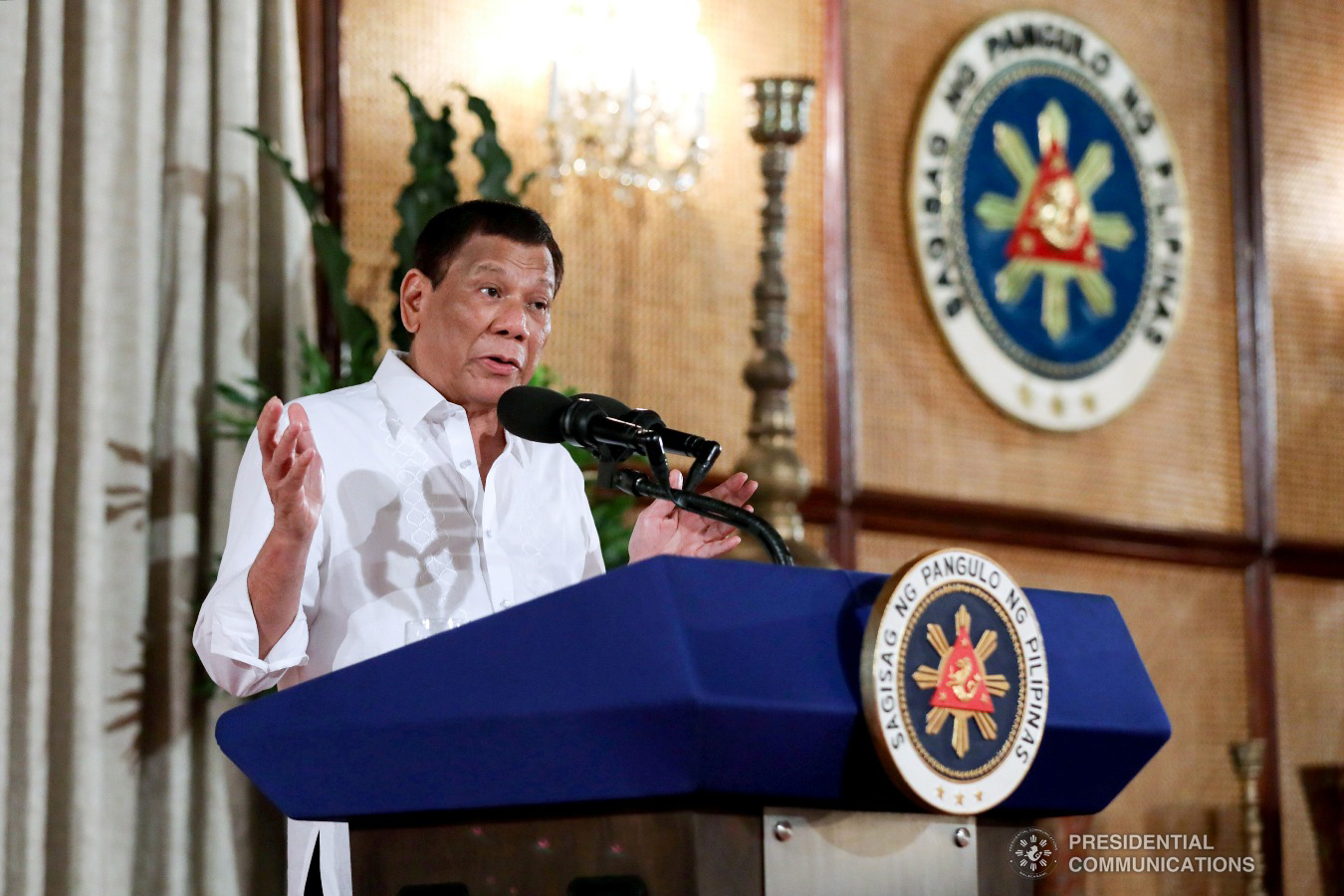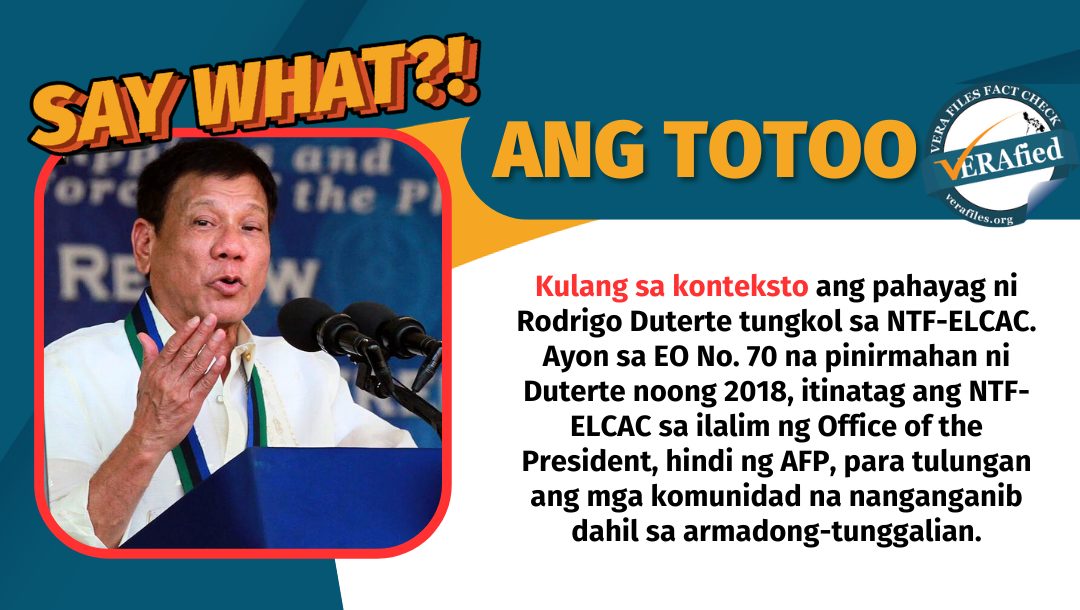Senior Associate Justice Antonio T. Carpio said today the Philippines can bring to the United Nations the matter of China’s President Xi Jinping threatening President Duterte that China would wage war if the Philippines starts drilling oil in disputed areas in the South China Sea.
In a statement, Carpio said: “The threat of China to go to war against the Philippines if the Philippines extracts oil and gas in the Reed Bank, or in any area within Philippine EEZ in the West Philippine Sea, is a gross violation of the United Nations Charter, UNCLOS, and the Treaty of Amity and Cooperation in Southeast Asia to which China and the Philippines are parties. As a nation that under its Constitution has renounced war as an instrument of national policy, the Philippines’ recourse is to bring China’s threat of war to another UNCLOS arbitral tribunal, to secure an order directing China to comply with the ruling of the UNCLOS arbitral tribunal that declared the Reed Bank part of Philippine EEZ. The Philippines can also ask for damages for every day of delay that the Philippines is prevented by China from exploiting Philippine EEZ.”
Another recourse, Carpio said, is for the Philippines to bring China’s threat before the United Nations General Assembly “by sponsoring a resolution condemning China’s threat of war against the Philippines and demanding that China comply with the ruling of the UNCLOS arbitral tribunal.”
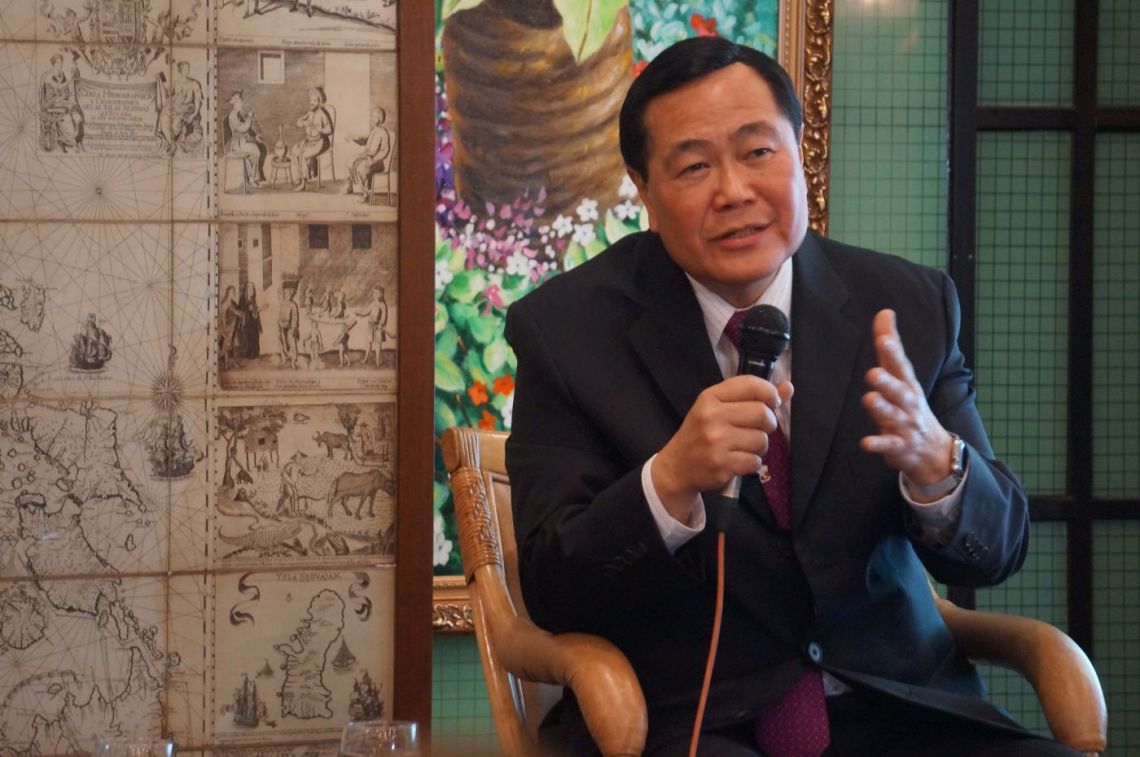
Senior Associate Justice Antonio T. Carpio. (File photo by Daniel Abunales)
China is one of the Big Five of the U.N Security Council with power of veto but at the General Assembly, China has no veto, Carpio stressed.
Last Friday, in a speech at the 33rd National Convention of the Philippine Coast Guard Auxiliary in Lining, Davao City, Duterte said Xi told him that if the Philippines starts drilling oil in the disputed area South China Sea, they will wage war.
Duterte related Xi’s threat to belie the statements of Carpio and former Foreign Secretary Albert del Rosario (whom he kept on referring as Ramon del Rosario) that he is being soft on China and does not use the Arbitral Court decision, which favors the Philippines, as leverage in dealing with the behemoth neighbor.
“I’ve been all around Asia, particularly about the ASEAN countries and China. At huwag ho kayong maniwala na, for example, Ramon Del Rosario and itong si Justice Carpio na mahina ang dating ko, na hindi ko ginawa iyong arbitral award as a leverage,” Duterte said.
Duterte said in the presence of National Security Adviser Hermogenes Esperon and Defense Secretary Delfin Lorenzana, he told Xi pointblank, “That is ours and we intend to drill oil there. If it’s yours, well that is your view, but my view is that I can drill the oil if there is some inside the bowels of the earth, because it is ours.”
Duterte said Xi replied, “Well we are friends, we do not want to quarrel with you. We would want to maintain the present warm relationship. But if you force the issue, we’ll go to war.”
Duterte further narrated that he reminded Xi about the ruling of the Arbitral Court in The Hague nullifying China’s all-encompassing nine-dash-line map and declaring illegal the man-made islands build by the Chinese in the features in the Spratlys that they have occupied.
Duterte said, Xi answer replied that, “yours is legal of present memory. Amin mga Ming-Ming Dynasty pa. (Ours date back to the Ming dynasty).”
Xi, according to Duterte, said “Well if you force this, we’ll be forced to tell you the truth.”
He asked what’s the truth and Xi answered, “We will go to war. We will fight you.”
Following is Justice Carpio’s statement in full on China’s threat to go to war with the Philippines.
The United Nations Charter outlaws the use or threat of force to settle disputes between states. In the West Philippine Sea dispute, an arbitral tribunal created under the United Nations Convention on the Law of the Sea (UNCLOS), to which China is a party, has already ruled with finality that the Reed Bank is within the Exclusive Economic Zone (EEZ) of the Philippines and only the Philippines can exploit the natural resources within Philippine EEZ.
The threat of China to go to war against the Philippines if the Philippines extracts oil and gas in the Reed Bank, or in any area within Philippine EEZ in the West Philippine Sea, is a gross violation of the United Nations Charter, UNCLOS, and the Treaty of Amity and Cooperation in Southeast Asia to which China and the Philippines are parties. As a nation that under its Constitution has renounced war as an instrument of national policy, the Philippines’ recourse is to bring China’s threat of war to another UNCLOS arbitral tribunal, to secure an order directing China to comply with the ruling of the UNCLOS arbitral tribunal that declared the Reed Bank part of Philippine EEZ.
The Philippines can also ask for damages for every day of delay that the Philippines is prevented by China from exploiting Philippine EEZ. The Philippines can also bring China’s threat to go to war against the Philippines before the United Nations General Assembly by sponsoring a resolution condemning China’s threat of war against the Philippines and demanding that China comply with the ruling of the UNCLOS arbitral tribunal. China has no veto in the General Assembly.
The Philippine Constitution mandates that the “State shall protect the nation’s marine wealth in its xxx exclusive economic zone.” Since the Philippines has renounced war as an instrument of national policy, the President has the constitutional duty to use all legal means under international law to protect Philippine EEZ. In the face of China’s open threat of war to seize Philippine EEZ in the West Philippine Sea, an area larger than the total land area of the Philippines, the President cannot simply do nothing, or worse acquiesce to China’s action, for inaction is the opposite of protecting Philippine EEZ.
Under international law, acquiescence is the inaction of a state in the face of threat to its rights under circumstances calling for objection to the threat to its rights. Acquiescence means the Philippines will lose forever its EEZ in the West Philippine Sea to China.
China’s blatant threat of war against the Philippines demands that the Philippines strengthens its defenses and alliances. In particular, the Philippines must strengthen its alliance with the United States, the only country with whom the Philippines has a mutual defense treaty. The United Nations Charter recognizes the right of states to mutual self-defense against armed aggression. The Philippines can ally with the United States because the United States does not claim the West Philippine Sea or any Philippine territory. The Philippines cannot ally with China because China wants to grab for itself the West Philippine Sea and the Spratlys. As long as China threatens the Philippines with war over the West Philippine Sea, the Philippines can never lower its guard in its dealings with China.
Among all the countries in the world, only China has threatened the Philippines with war over Philippine EEZ in the West Philippines Sea. The other claimant states in the Spratlys – Vietnam, Malaysia, Brunei – recognize Philippine EEZ, including Reed Bank, in the West Philippine Sea. The only dispute of the Philippines with Vietnam and Malaysia is on high-tide elevation rocks and their 12 nautical mile territorial seas in the Spratlys, which are more than 100 nautical miles from Reed Bank. Vietnam and Malaysia are certainly not claiming the Reed Bank. The Philippines has no dispute with Brunei.
Reed Bank is vital to Philippine national interest. It is the only replacement for Malampaya, which supplies 40 percent of the energy requirement of Luzon. Malampaya will run out of gas in less than 10 years. Unless the Philippines develops Reed Bank, Luzon will suffer 10 to 12 hours of brownouts daily 10 years from now. This will devastate the Philippine economy.
China’s threat of war against the Philippines over the West Philippine Sea reveals the aggressive design of China against the Philippines. No less than Chinese President Xi Jingping has delivered the threat personally to Philippine President Rodrigo Duterte. This extremely troubling development calls for all Filipinos to unite to defend the West Philippine Sea in accordance with the Constitution, international law and UNCLOS.
